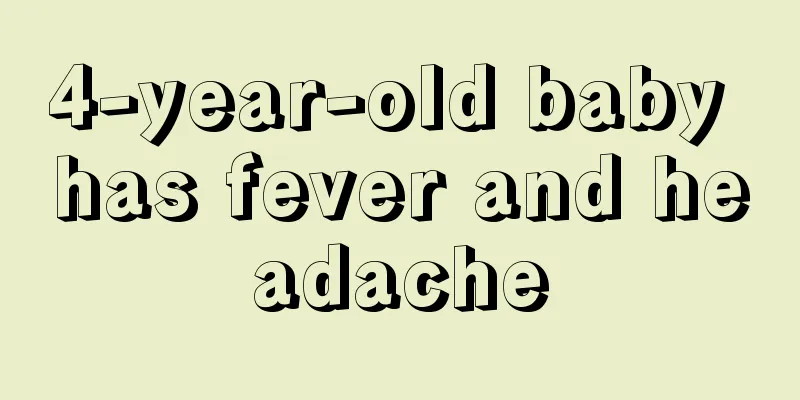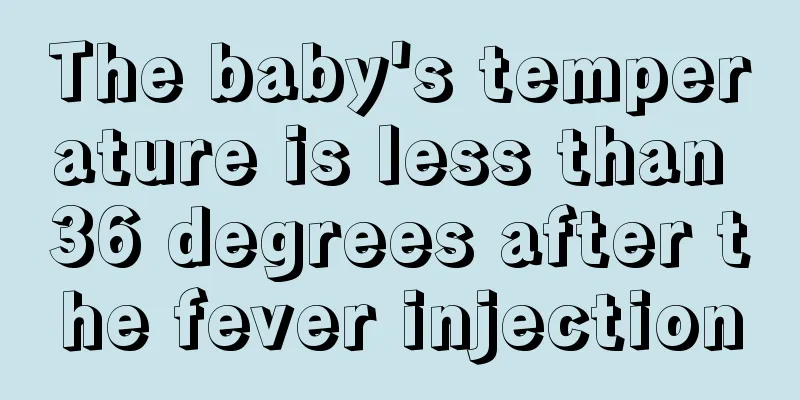What is the cause of neonatal laryngeal sound?

|
Everyone knows that children like to cry, and you can tell whether the child is healthy from the sound of his or her crying. Some children may make a humming sound when they cry, and some parents may be nervous about this. In fact, this is not a big problem. Let me explain it to you in detail. Because the child's laryngeal cartilage is not well developed, his (her) laryngeal cartilage covers the glottis when inhaling, causing a chicken-like sound. This is called congenital laryngeal stridor. Congenital laryngeal stridor is a laryngeal sound caused by the weakness and relaxation of laryngeal tissue in infants and young children, the collapse of tissue during inhalation, and the shrinkage of laryngeal cavity, also known as laryngeal cartilage softening. It usually occurs shortly after birth or a few months later. Based on the history of laryngeal stridor shortly after birth, there was no history or signs of foreign bodies in the respiratory tract or other diseases. The lateral laryngeal X-ray is normal, the cry is loud and the swallowing is good, and the diagnosis can usually be made without direct laryngoscopy. Onset: Laryngitis may occur due to malnutrition during pregnancy, fetal calcium deficiency, or the epiglottis cartilage is too large and soft, which causes the laryngeal cavity to narrow and vibrate like a valve. Inspiratory arytenoid prolapse is another cause. Clinical manifestations: The infant's breathing is normal at birth, but laryngeal stridor gradually develops 1 to 2 months after birth. Most of the symptoms are persistent or intermittent. Laryngolaryngitis occurs only during the inspiratory phase and may be accompanied by inspiratory dyspnea. There are also cases where the laryngeal sound is not obvious at ordinary times, but occurs immediately after the slightest stimulation. Some are related to body position, getting worse when lying on your back and getting better when lying on your stomach or side. The general condition of most children is good and their crying is not hoarse. Note: The disease may be aggravated by upper respiratory tract infection. In fact, sometimes when children cry, there are humming sounds, it is only because the children’s vocal tract is not fully developed, so it sounds a bit problematic, but it will get better as they grow up. If this is not the problem, then it may be a respiratory infection, so it is best to go to the hospital for a check-up. |
<<: What to do if baby has ringworm on legs
>>: What to do if your baby has ringworm
Recommend
A brief discussion on the red spots on the tip of the tongue of a four-month-old baby
Taking care of the baby is the family's proud...
Is it okay to give your baby a bath every day?
During the growth of a baby, a large amount of su...
Why does my baby like to shake his head when sleeping?
Babies are the flowers of the motherland and the ...
Causes of autism
From a professional medical perspective, autism i...
What to do if the fever persists
In daily life, illness is the most common thing t...
What should I do if my child has brain maldevelopment?
If a child's brain is poorly developed, paren...
Is it normal for a one and a half year old baby to have thin and yellow hair?
Children are the apple of their parents' eyes...
Children's tonsils are swollen to the third degree
When we have a cold and go to the hospital to get...
Best treatment for eczema in children
Eczema is a common skin disease in modern medical...
What are the small white spots on the baby's face? Be alert to this disease
For mothers who take good care of their children,...
Why does my baby always sweat?
When taking care of children, many parents will f...
Can a six month old baby sit?
Babies grow very quickly after birth, and it real...
What should I do if my 2 and a half year old baby can't speak?
If a two and a half year old baby still cannot sp...
Nursing methods for babies with vomiting and low-grade fever
Today's babies are relatively fragile, so it ...
How to grow taller during adolescence, 8 things to pay attention to!
1. Pay attention to sleep Lack of sleep and poor ...









